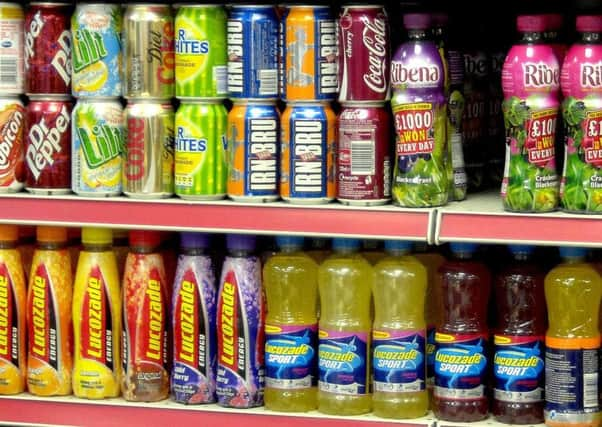Sugar tax gets thumbs up in Sunderland '“ but cuts leave a bitter taste


The so-called ‘sugar tax’ was announced in this week’s Budget.
The tax - which will be brought in in two years’ time to give manufacturers time to drive down the sugar content of their drinks - has not yet been set, but the Office for Budget Responsibility has estimated it could add 18p to 24p to the price of a litre of fizzy drink if the full cost is passed on to the consumer.
Advertisement
Hide AdAdvertisement
Hide AdThe move is expected to raise £520million, which will be used to double the amount of funding for sport in every primary school.
Childhood obesity is a serious problem nationwide, with the North East a particular blackspot.
A 2013 report from the Health and Social Care Information Centre found 10.6 per cent of reception age children and 21.3 per cent of Year 6 pupils in Sunderland were classed as obese, compared to a national average of 9.3 per cent and 18.9 per cent respectively.
Sunderland City Council is responsible for public health promotion on Wearside.
Advertisement
Hide AdAdvertisement
Hide AdCoun John Kelly, the city council’s Portfolio Holder for Public Health, Wellness and Culture, welcomed the move but said the Government has axed funding to other health services.
“I think we all know the reasons why this has been done,” he said.
“Let’s now hope the Government makes sure children and schools across all the country benefit from these sugar tax receipts.
“Unfortunately, the Government has been reducing other public health funding and this is a false economy.
Advertisement
Hide AdAdvertisement
Hide Ad“Over the next three years, Sunderland’s Public Health grant funding is being cut by more than £2.5million and this is very disappointing.
“This is because these cuts fail to produce overall savings as the scaling down of preventative measures simply increases later burdens within the health and social care system at a higher cost.
“The council is taking more than £46million out of its budgets in the next 12 months because of Government cuts and spending pressures.
“While the council continues to review, remodel and redesign services, it is inevitable that sustained reductions in funding are going to have an impact and public health is no exception.”
Advertisement
Hide AdAdvertisement
Hide AdMr Osborne told MPs obesity cost the economy £27billion a year: “One of the biggest contributors to childhood obesity is sugary drinks. A can of cola typically has nine teaspoons of sugar.
Some drinks have as many as 13.”